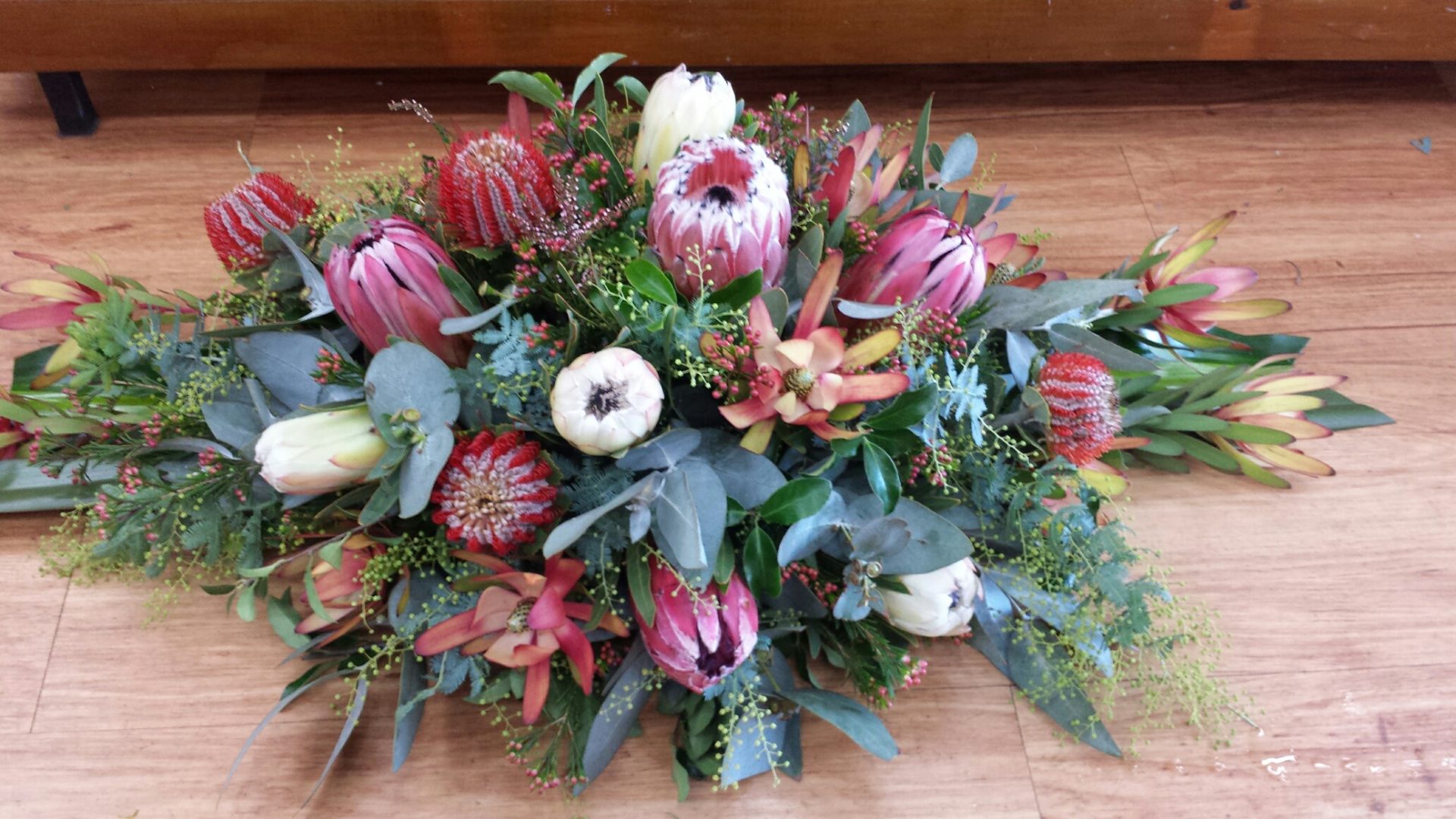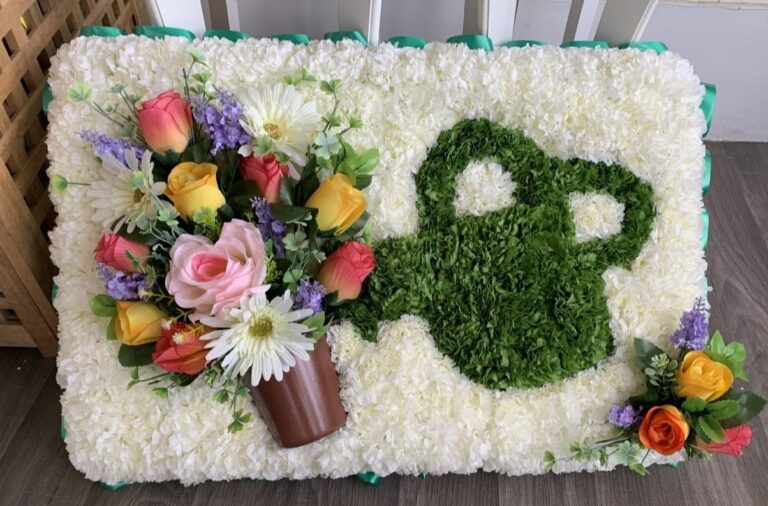A Lasting Tribute: How Funeral Flowers Speak Volumes in Moments of Loss
In moments of loss, the significance of funeral flowers cannot be overstated. These floral arrangements have long served as a profound expression of sympathy, support, and remembrance. With their delicate beauty and powerful symbolism, funeral flowers provide comfort to grieving individuals and serve as a lasting tribute to the departed.
Understanding the Language of Funeral Flowers
In order to fully appreciate the impact of funeral flowers delivery, it is essential to understand the language they speak. Each bloom carries its own unique symbolism, conveying a message that goes beyond words. These symbols have deep roots in cultural traditions and personal associations, making the choice of funeral flowers a deeply personal one.
Funeral flowers have been used for centuries as a way to honor and remember the deceased. They serve as a visual representation of the emotions and sentiments felt by those left behind. The colors, types, and arrangements of flowers all contribute to the overall message being conveyed.
The Symbolism Behind Popular Funeral Flowers
From the timeless elegance of roses to the purity of lilies, popular funeral flowers carry profound symbolism. Roses, often associated with love, express deep affection and respect for the deceased. The different colors of roses also have their own meanings. Red roses symbolize love and courage, while white roses represent purity and innocence. Yellow roses, on the other hand, symbolize friendship and warmth.
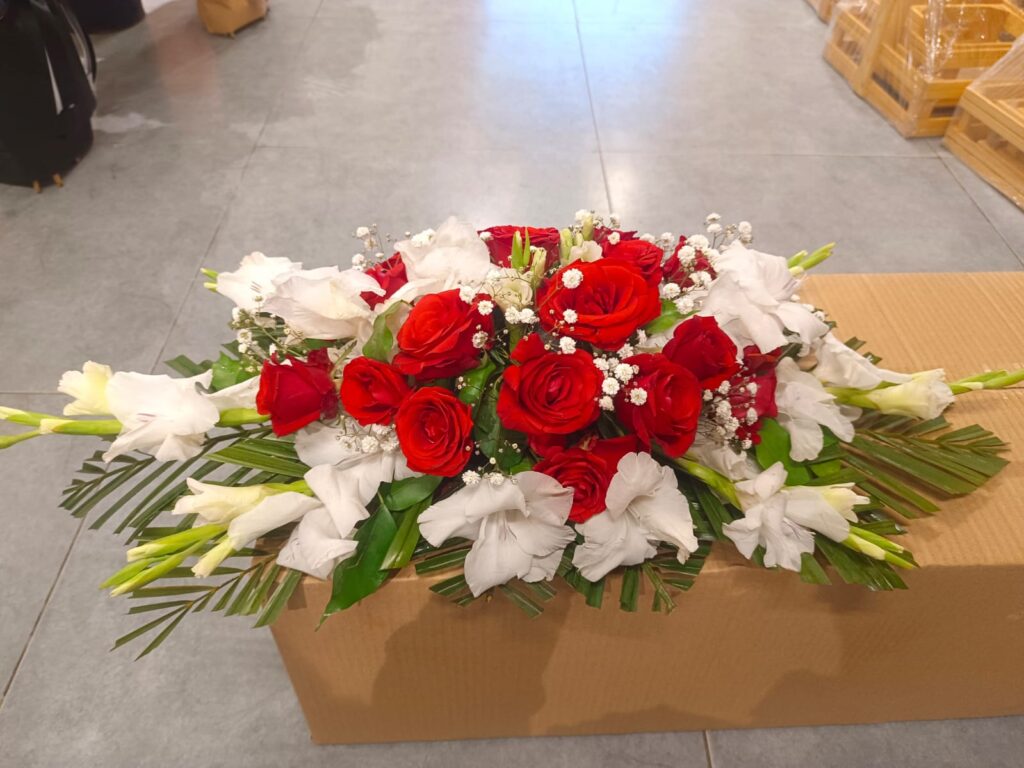
Lilies, on the other hand, represent the purity and innocence of the departed soul. These elegant flowers are often used in funeral arrangements to convey a sense of peace and tranquility. The white lily, in particular, is a symbol of the Virgin Mary and is often associated with purity and rebirth.
Other popular funeral flowers include carnations, which symbolize love and remembrance, and chrysanthemums, which represent honor and loyalty. Each flower holds its own significance, allowing mourners to choose the ones that best reflect the life and personality of their loved ones.
Cultural Interpretations of Funeral Flowers
Across different cultures, funeral flowers hold diverse meanings and significance. In certain traditions, such as Asian cultures, chrysanthemums symbolize grief and are commonly used to honor the deceased. These flowers are often seen at funerals and memorial services, serving as a way to express sorrow and pay respects.
In other cultures, like Celtic traditions, daffodils and daisies represent rebirth and renewal. These flowers are often used to celebrate the life of the departed and to symbolize the cycle of life and death. The bright yellow color of daffodils brings a sense of warmth and positivity to funeral arrangements, while daisies represent purity and innocence.
Understanding these cultural interpretations allows mourners to pay their respects in a way that resonates deeply with their heritage. It provides an opportunity to honor the deceased in a manner that is meaningful and significant to their cultural background.
Funeral flowers are not just a visual tribute, but a way to communicate emotions and sentiments when words fail. They offer comfort and solace to those grieving, serving as a reminder of the beauty and fragility of life. The language of funeral flowers is a universal one, transcending cultural boundaries and bringing people together in their shared experiences of loss and remembrance.
The Role of Funeral Flowers in Expressing Condolences
Funeral flowers provide a means to express condolences when words fail. The beauty and fragility of these blossoms offer solace and support to grieving individuals, reminding them that they are not alone in their pain. The carefully chosen floral arrangements convey emotions and sentiments that can be difficult to articulate in times of loss.
Funeral flowers have a long-standing tradition in many cultures around the world. They serve as a symbolic gesture of love, respect, and remembrance for the deceased. The presence of flowers at a funeral can create a serene and peaceful atmosphere, providing a sense of comfort to those in mourning.
Conveying Emotions through Floral Arrangements
Whether it is a bold spray of vibrant blooms or a gentle cascade of pastel petals, funeral flower arrangements evoke a range of emotions. Bright colors, like red and yellow, can express passion and warmth, while softer hues, such as white and blue, signify serenity and calmness. By selecting arrangements that reflect the emotions felt towards the departed, mourners can find comfort in knowing their sentiments are understood.
Each flower carries its own symbolic meaning, allowing mourners to convey specific emotions through their choice of blooms. For example, roses are often associated with love and beauty, while lilies symbolize purity and innocence. By incorporating these meaningful flowers into funeral arrangements, mourners can pay tribute to the unique qualities and characteristics of the departed.
The Art of Choosing the Right Funeral Flowers
Choosing the right funeral flowers requires careful consideration of the deceased’s personality, preferences, and relationships. Some may opt for a favorite flower or a bloom associated with a cherished memory. Others may seek guidance from florists who specialize in funeral arrangements, ensuring that the chosen flowers create a meaningful tribute that truly captures the essence of the departed.
It is important to remember that funeral flowers not only serve as a way to express condolences but also as a way to celebrate the life of the deceased. They can reflect the individual’s hobbies, passions, or even their cultural background. For example, if the departed had a love for gardening, incorporating flowers like daisies or sunflowers can pay homage to their green thumb and bring a sense of joy to the funeral service.
Funeral flowers can also be arranged in unique and personalized ways. Some may choose to create a floral wreath in the shape of a heart, symbolizing eternal love. Others may opt for a cascading bouquet, representing the continuous flow of memories and emotions. The possibilities are endless, allowing mourners to create a tribute that is as unique as the person they are honoring.
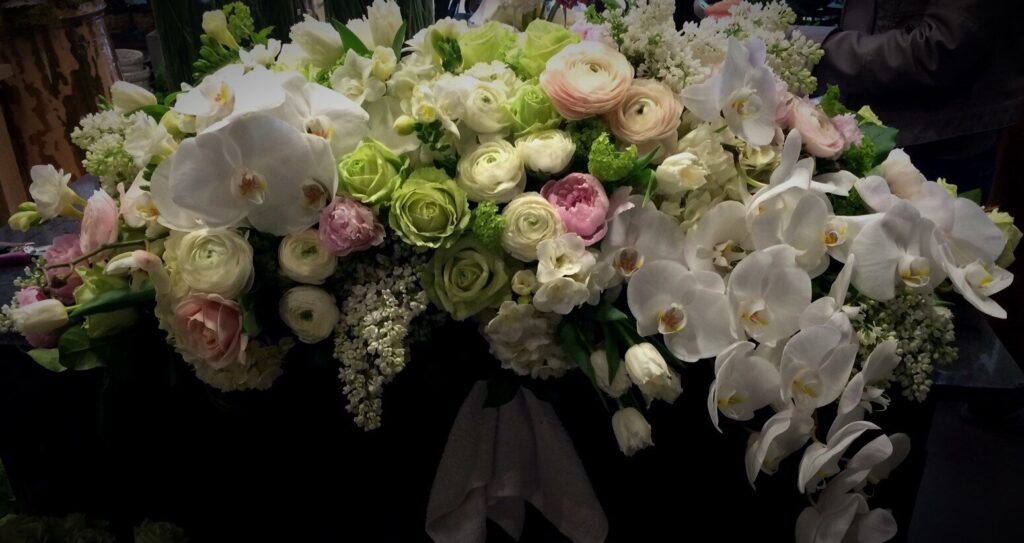
In conclusion, funeral flowers play a significant role in expressing condolences and honoring the life of the departed. They offer a way to convey emotions when words are insufficient and provide comfort to those who are grieving. The art of choosing the right funeral flowers involves careful thought and consideration, ensuring that the arrangements reflect the personality and relationships of the deceased. By incorporating meaningful blooms and unique arrangements, mourners can create a tribute that celebrates the life and legacy of their loved one.
The Evolution of Funeral Flower Traditions
Funeral flower traditions have endured throughout history, adapting to cultural shifts and societal changes. From ancient civilizations to modern times, funeral flowers have played a crucial role in honoring the departed and providing solace to the bereaved.
Let’s delve deeper into the fascinating historical perspectives on funeral flowers and explore the modern trends in funeral flower arrangements.
Historical Perspectives on Funeral Flowers
In ancient Egypt, funeral processions were adorned with elaborate flower arrangements, symbolizing rebirth and the journey to the afterlife. The Egyptians believed that flowers had the power to guide the souls of the deceased to their final resting place. They meticulously selected specific flowers, such as lotus blossoms, which represented the cycle of life and death. These floral tributes not only served as a visual spectacle but also held deep spiritual significance.
Similarly, during the Victorian era, mourners used flowers to convey complex emotions and messages. Each flower had a specific meaning, allowing individuals to express their feelings towards the deceased without uttering a single word. For example, lilies symbolized purity and innocence, while roses represented love and remembrance. The language of flowers, known as floriography, became a popular way to communicate unspoken sentiments during the mourning period.
These historical perspectives offer valuable insights into the enduring significance of funeral flowers. They highlight the universal human need to honor and remember loved ones, transcending time and cultural boundaries.
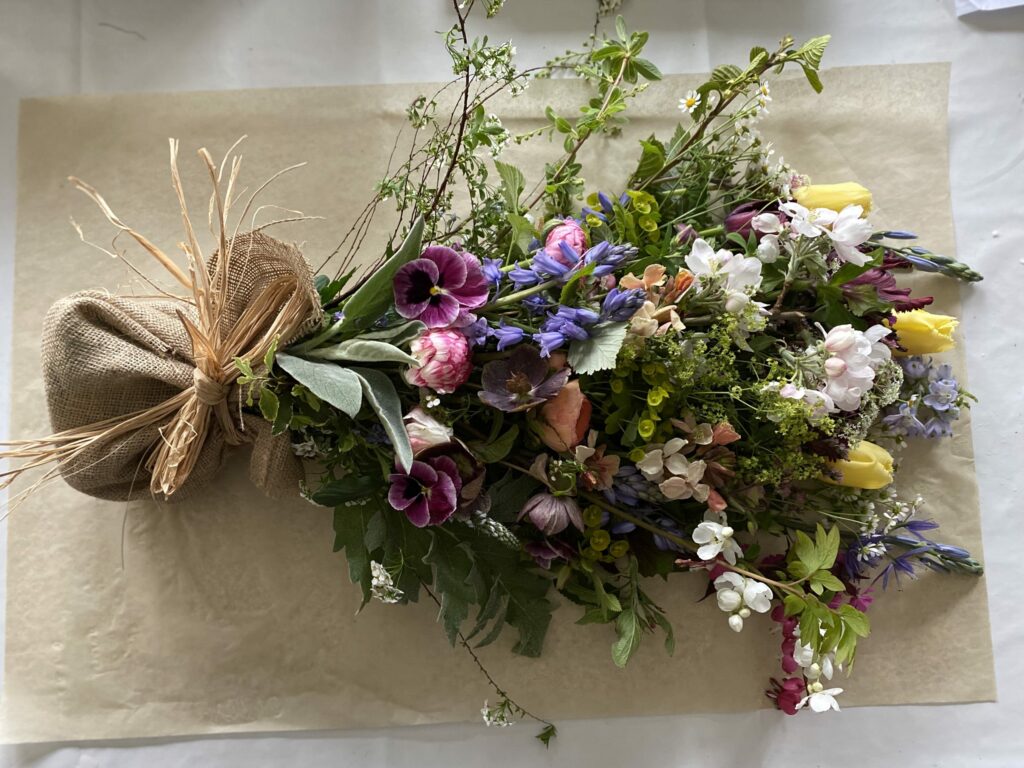
Modern Trends in Funeral Flower Arrangements
With the passage of time, funeral flower arrangements have evolved to reflect changing tastes and preferences. While traditional bouquets and wreaths still hold their place, modern trends have introduced more contemporary and personalized options.
One such trend is the rise of customized flower sculptures. These intricate and artistic arrangements go beyond the traditional bouquet, transforming flowers into stunning works of art. Mourners can now choose to have their loved one’s favorite objects or hobbies incorporated into the floral design, creating a truly unique and meaningful tribute.
Another emerging trend is the concept of living memorials. Instead of cut flowers that eventually wither away, mourners are opting for potted plants or trees that can be planted in memory of the deceased. These living tributes not only provide a lasting symbol of remembrance but also contribute to the environment, fostering a sense of sustainability and renewal.
Furthermore, the growing concern for the environment has led to the development of biodegradable floral arrangements. These eco-friendly options utilize organic materials that break down naturally, minimizing the impact on the planet. From biodegradable urns filled with wildflowers to seed-infused paper that blossoms into flowers when planted, these innovative funeral flower arrangements symbolize the circle of life and the interconnectedness of all living things.
As funeral flower traditions continue to evolve, they remain a powerful means of expressing grief, celebrating life, and finding solace in times of loss. Whether rooted in ancient rituals or embracing modern innovations, funeral flowers continue to provide comfort and beauty in the face of mortality.
Creating a Lasting Tribute with Funeral Flowers
Personalization is key when creating a lasting tribute with funeral flowers. By incorporating elements that reflect the life and passions of the deceased, mourners can ensure that the floral arrangements serve as a poignant representation of their loved one’s journey.
Personalizing Funeral Flowers for a Unique Tribute
Adding personal touches, such as photographs, notes, or even small mementos, can transform funeral flower arrangements into deeply meaningful tributes. These personalized elements help celebrate the life lived and create a connection between the mourners and their departed loved one, ensuring that the memory of the deceased lives on through the beauty of flowers.
Preserving Funeral Flowers for Lasting Memories
Preserving funeral flowers allows mourners to hold onto tangible reminders of their loved ones. Drying or pressing flowers can turn them into cherished keepsakes, ensuring that the memory of the departed remains alive for years to come. Whether displayed in shadow boxes or incorporated into artwork, these preserved flowers become tangible symbols of love and remembrance.
The Impact of Funeral Flowers on the Grieving Process
The presence of funeral flowers has a profound impact on the grieving process, providing comfort, solace, and a sense of closure. These floral tributes not only honor the life of the departed but also help mourners navigate the complex emotions that accompany loss.
The Therapeutic Benefits of Funeral Flowers
Studies have shown that the presence of flowers can have therapeutic effects on individuals who are grieving. The exposure to natural beauty and the delicate scent of blossoms can promote feelings of calmness, reduce stress, and provide a sense of emotional well-being. Funeral flowers, therefore, serve as a therapeutic tool for those processing their grief.
How Funeral Flowers Facilitate Mourning and Healing
Funeral flowers play a vital role in facilitating the mourning process and promoting healing. The visual presence of these blooms serves as a reminder that life continues even in the face of loss. Through their beauty and symbolic significance, funeral flowers provide comfort, support, and a tangible connection to the departed, helping mourners find solace and begin the journey towards healing.With their profound symbolism and gentle beauty, funeral flowers truly speak volumes in moments of loss. From conveying condolences to honoring the departed, they offer solace, support, and a lasting tribute that transcends words. By understanding their language and embracing their significance, mourners can find comfort and healing in the delicate petals that serve as a powerful reminder of love, remembrance, and the enduring power of the human spirit.

